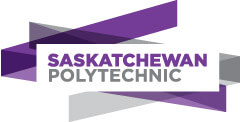About Integrated Resource Management Diploma in Saskatchewan Polytechnic
Program Overview
Saskatchewan’s natural resources are rich and varied—fisheries, forests, wildlife and park areas. Integrated resource management (IRM) takes a balanced approach to managing these resources. The focus is on sustainability and stewardship.
Integrated resource management practitioners are analytic thinkers who combine a knack for science with a love of the outdoors. It’s an excellent career choice if you want to play a role in sustainable silviculture (forestry management), fisheries, wildlife or park management.
Integrated Resource Management is a two-year diploma program that gives you a unique perspective on balancing the environmental, economic and social factors of natural resource development. The program emphasizes hands-on learning through labs, camps, field exercises and work experience. You’ll learn how to collect and analyze data, enforce regulations and monitor resource use. You’ll develop knowledge and skill in:
- applying Global Positioning Systems (GPS) and Geographical Information Systems (GIS) to resource management situations
- applying statistics to resource management problems
- fish, wildlife, forestry and parks management
- implementing quality control
- mapping, compassing and remote sensing
- operating and maintaining chainsaws, boats and trailers
- plant and wildlife identification
- research design, analysis and technical reporting
- surviving in the wilderness
You’ll graduate with hands-on experience from a North American Wildlife Technology Association (NAWTA) accredited program.
Get Your Feet Wet and Hands Dirty
Field camps are a popular part of Saskatchewan Polytechnic’s Natural Resources programs. We have our own outdoor camp on the north side of Candle Lake, the Hannin Creek Education and Applied Research Centre. You’ll spend three weeks here in the fall learning a variety of hands-on skills. You’ll return for winter camp to learn about winter ecology and outdoor survival.
Diploma to Degree
Ladder your Integrated Resource Management diploma into a degree at the University of Regina (Bachelor of Science in Environmental Biology), University of Saskatchewan (Bachelor of Science in Agriculture or Bachelor of Science in Renewable Resource Management) or Lakeland College (Bachelor of Applied Science in Environmental Management).
Career and Salary Information
Your Career
Career choices for Integrated Resource Management graduates are excellent. You could work as a fish and wildlife technician, forestry technician, plant specialist or park ranger across Western and Northern Canada. You might work for conservation authorities, First Nation communities, forestry companies, exploration and resource companies, government agencies, municipalities, private contractors and many more.
Academic qualification equivalents:
- Grade 12 with a minimum 60% in each of the following subjects: English Language Arts A30, English Language Arts B30, Chemistry 30 and Pre-Calculus 30
English language requirements (one of the below):
- IELTS : Overall minimum score of Band 6.5 with a minimum score of 5.0 in each component.
- TOEFL : An overall minimum score of 81 on the Internet-based Test of English
- PTE : A minimum score of 63 with minimum component scores of 50.
Saskatchewan Polytechnic Highlights
| Type |
Public |
| Campus Setting |
Urban |
| Application mode |
Online and Paper mode available |
| Graduation rate |
62% |
| Acceptance rate |
96% |
| Number of Students |
16,008 |
| Overall cost of living |
14,762 CAD |
| Academic calendar |
Semester based |
| % of International students |
6% |
| Number of campuses |
4 |
| Medium of instructions |
English |
| Undergraduate Tuition fee |
14,044 CAD |
| Postgraduate Tuition fee |
16,426 CAD |
| Cost of living |
694 -1147 CAD per month |
Saskatchewan Polytechnic First-Year Tuition Fees And Living Expenses For International Students
Over the course of one academic year, the following graph displays tuition and living expense estimates in Canadian currency for one full-time international undergraduate student. Please bear in mind that these are only estimates; actual pricing will vary depending on your needs and preferences. Other factors to consider include currency changes, visa and study authorization fees, and vacations back home.
- For international students, the overall fees will range from:-
| Particulars |
Amount |
| Administrative fees |
50.00 to 150.00 CAD |
| Application fees |
150 CAD |
| Student association fee |
95.00 to 445.00 CAD |
| Non-refundable fee at the start) |
1,000 CAD |
| Tuition fee range |
6,195 to 18,089 CAD |
| Laboratory fee |
100.00 to 409.00 CAD with no fees for
some courses which do not have a lab service. |
| Books and Supplies |
200 to 3,725 CAD |
| Technology fee |
50 to 146 CAD |
- For a student of Saskatchewan Polytechnic the required financials (Cost of Attendance) can be:-
| Description of Financials |
Amount in CAD |
| Average cost of tuition |
11245.77 CAD |
| Cost of living |
10799.39 CAD |
| Application fee |
150 CAD |
| Estimated total (per year) |
22,195.16 CAD |
